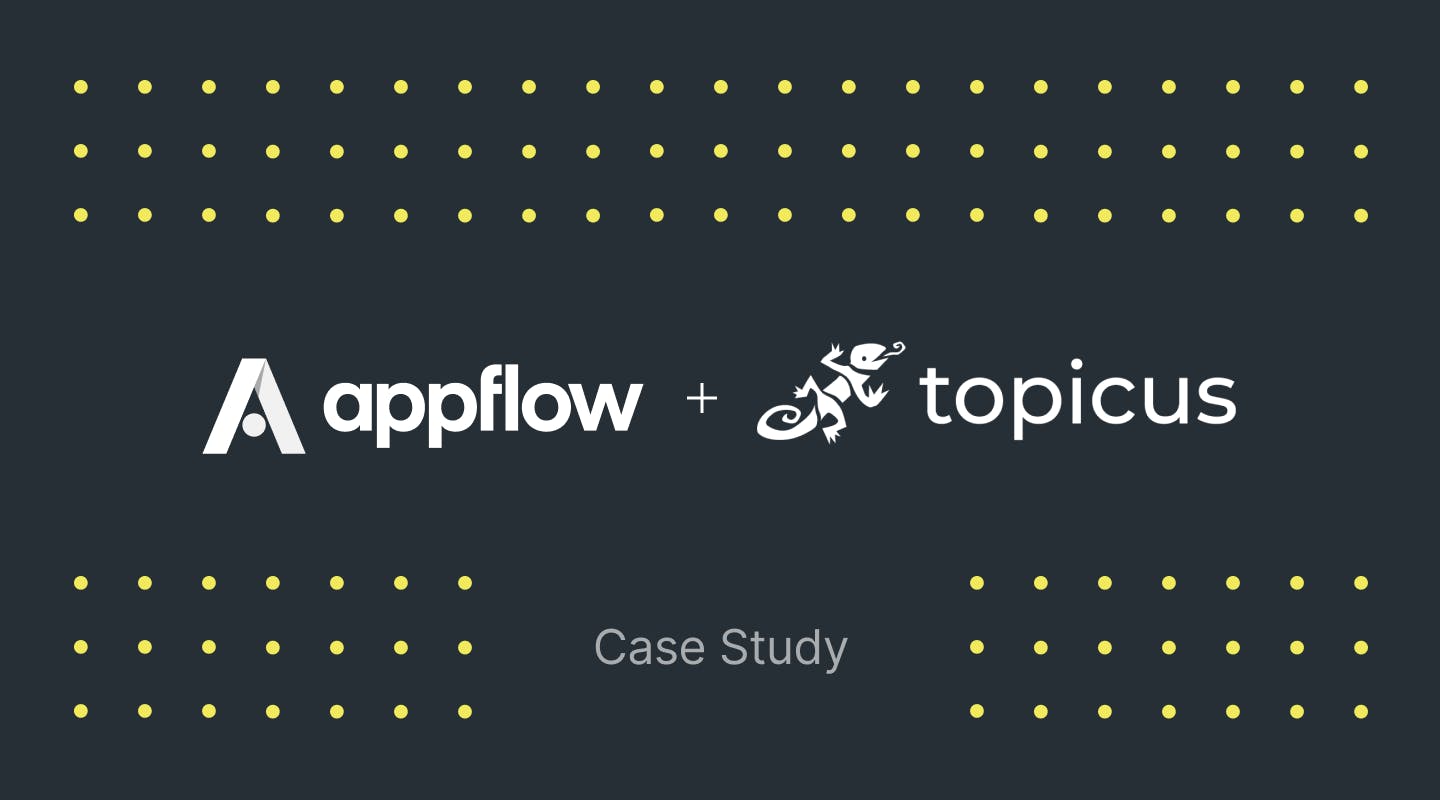Topicus: Streamlining the doctor patient connection with Ionic + Appflow
How pan-European-based tech firm Topicus created an application that revolutionized the way patients and doctors communicate in the Netherlands.

Getting medical questions answered can be tough. Doctors seem to have endlessly long waitlists, and it doesn’t always make sense to schedule an appointment to get a quick answer. With nowhere to turn, many are forced to seek urgent care unnecessarily or ignore the issue altogether, potentially causing more problems in the long run.
But what if there was a better way?
Topicus, a pan-European based technology solutions provider, believed there was. Their Netherlands branch sought to build an application that would allow patients to communicate with doctors via a proprietary chat interface when they needed quick medical assistance. No waiting rooms necessary.
Thanks to Ionic and Appflow, the team was able to build and deploy the application across Android, iOS, and the web without having to rebuild it 3 times. The team is also able to release updates and improvements faster than ever, all while maintaining a great user and developer experience.
The challenge
The Topicus team was already familiar with building apps - they’d created an Android, iOS, and web app. However, that meant they had 3 completely separate codebases, with three different languages, all of which needed to be updated and maintained. When it came time to renew and update their apps, the team wondered if there was a better way to maintain a consistent experience while lightening the load on the development team.
The team’s research led them to hybrid app development, which would allow them to maintain separate applications from a single codebase. The team was already familiar with Angular and Ionic, so the decision was easy.
We did also look into other frameworks, such as Flutter, but the biggest drawback was it’s built with Dart, which was a new programming language for our company and department.
Jan Verhoeckx, Technical Lead, Topicus
Jan notes that it was an “easy choice to go with Ionic because all our developers are already familiar with the framework and just had to learn about Capacitor and Appflow.”
The solution
Realizing they could do more with less, the decision to use Ionic was a simple one. The team now uses Ionic Framework (v7) and v5 of Capacitor, enabling them to use a suite of features and integrations that make the development process smoother than ever. The team also uses Appflow to manage continuous integration and continuous deployment (CI/CD) and to deploy live updates as changes are made to the application.
As the team didn’t have the infrastructure needed to run iOS builds, Appflow proved a perfect solution. The team is able to run critical builds via Appflow and circumvent the app store approvals process with Live Updates.
Live Updates is a really nice feature. We use it on a daily basis.
Jan Verhoeckx, Technical Lead, Topicus
Using Appflow and GitHub Actions, the team is able to seamlessly maintain a single codebase to maintain a consistent experience across web and mobile.
Since the Spreekuur.nl app has patient medical information, security is of the utmost importance. Topicus was initially using their own identity provider, but when the Dutch government changed regulations surrounding sensitive data, they needed to pivot to use an identity provider provided by the government. Luckily, Auth Connect from Ionic seamlessly integrated with both providers, making the switch easy.
Topicus also uses Identity Vault for biometric authentication within the application. Identity Vault works on the native layer, bringing together over a dozen native capabilities and security APIs for the best possible frontend protection, ensuring users’ sensitive medical data is secure.
The results
Whereas separate teams had to build and maintain the previous application for Android, iOS, and the web, now Topicus is able to leverage one team to do it all.
“Right now, one team is able to [work on] the web and the native apps because we have one codebase- it’s a major improvement,” says Jan.
In addition to maintaining a single codebase, the team is also able to release updates faster than ever with Appflow.
Verhoeckx added that “we are deploying features with live updates instead of going through the app store process. It helps us reduce the amount of releases we need to go through the app store.”
The team used to only be able to push to the app store once every two months or so, whereas now, with Live Updates, they’re able to push bug fixes and updates on a weekly basis. Plus, if anything goes wrong with a new release, they’re able to easily roll back to a prior version, enabling them to be more agile and keep security at the forefront of their development.
Now, with close to 7,000 chats and over 4,000 patient consults each month, Topicus is helping to make healthcare more accessible to all.